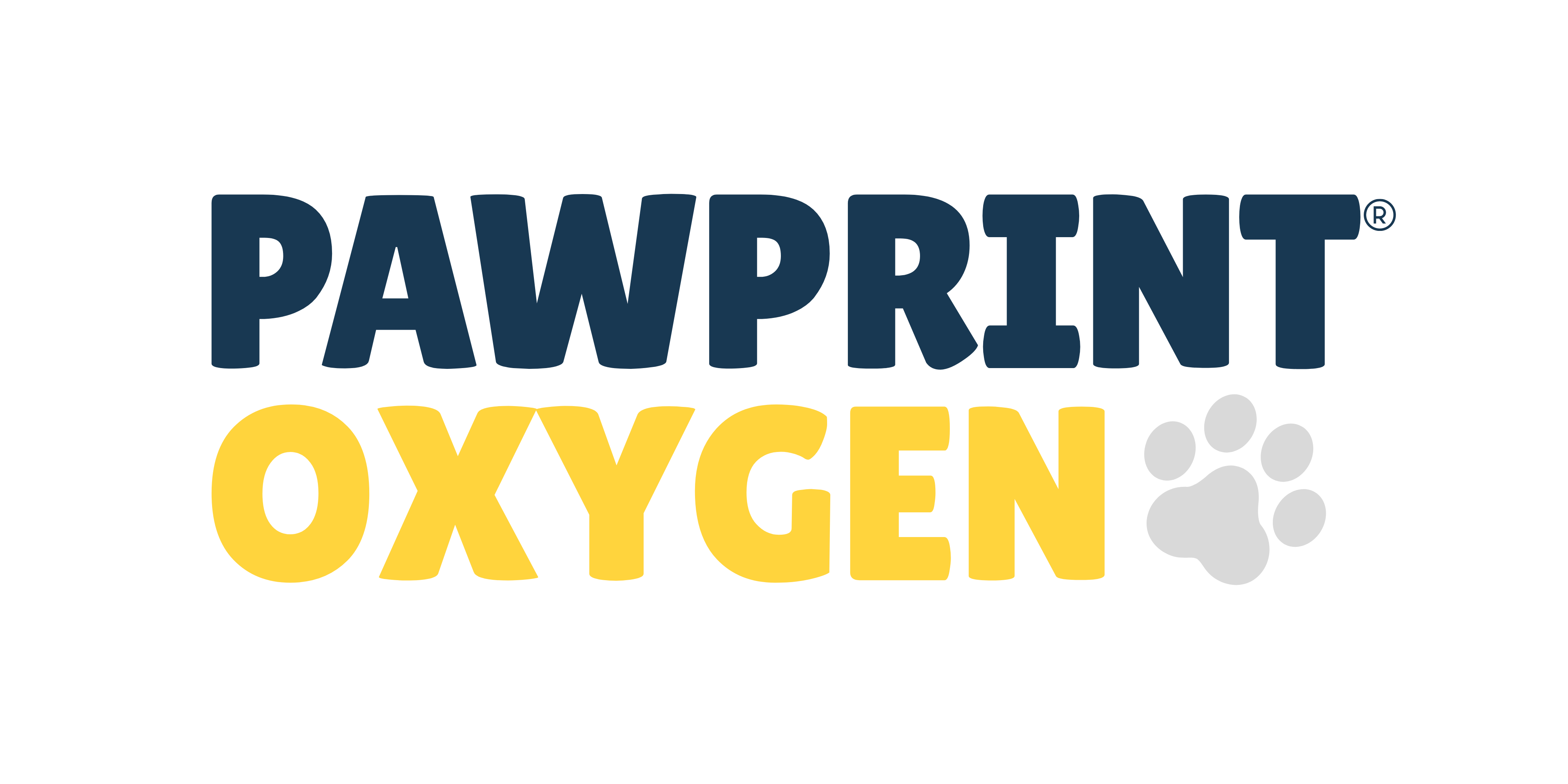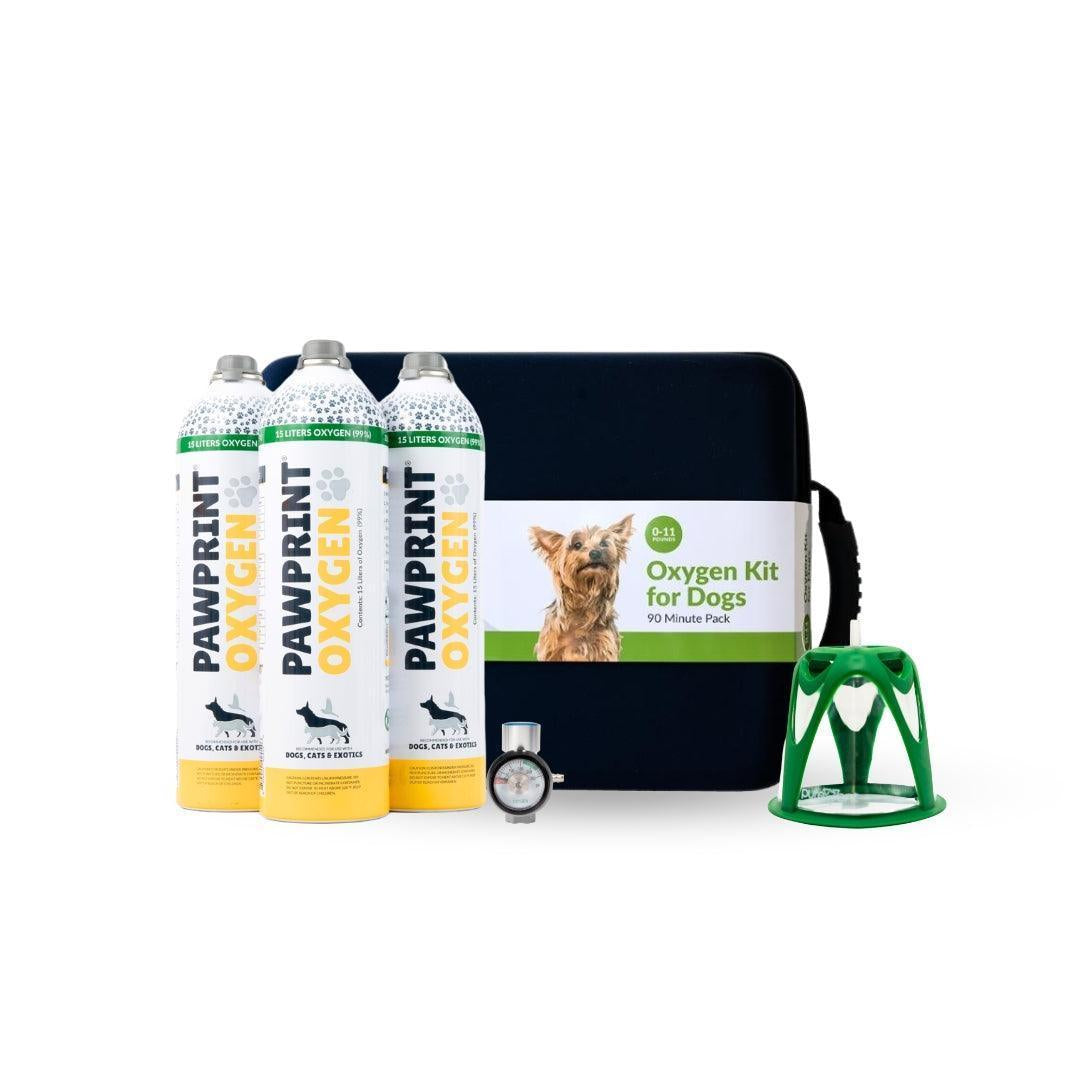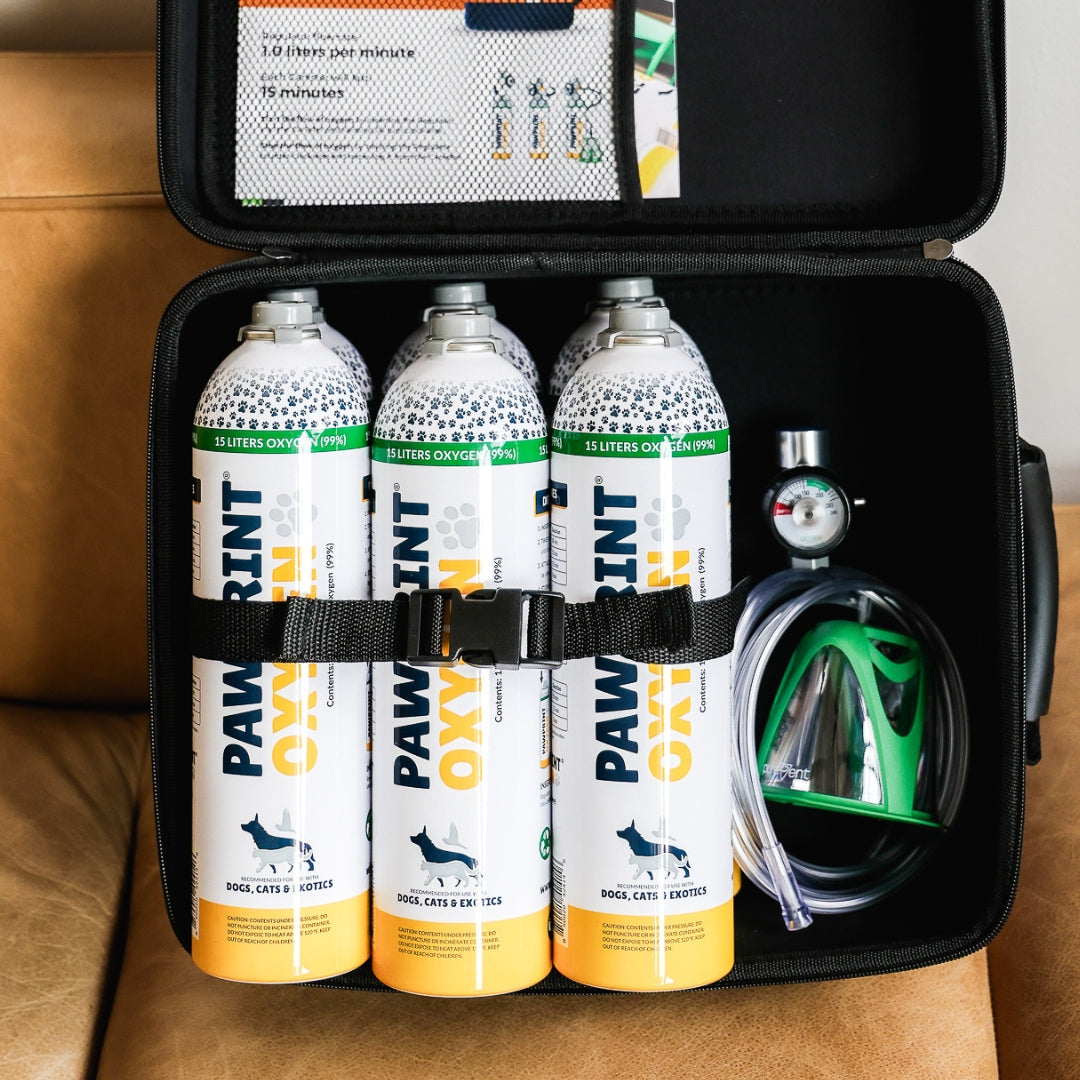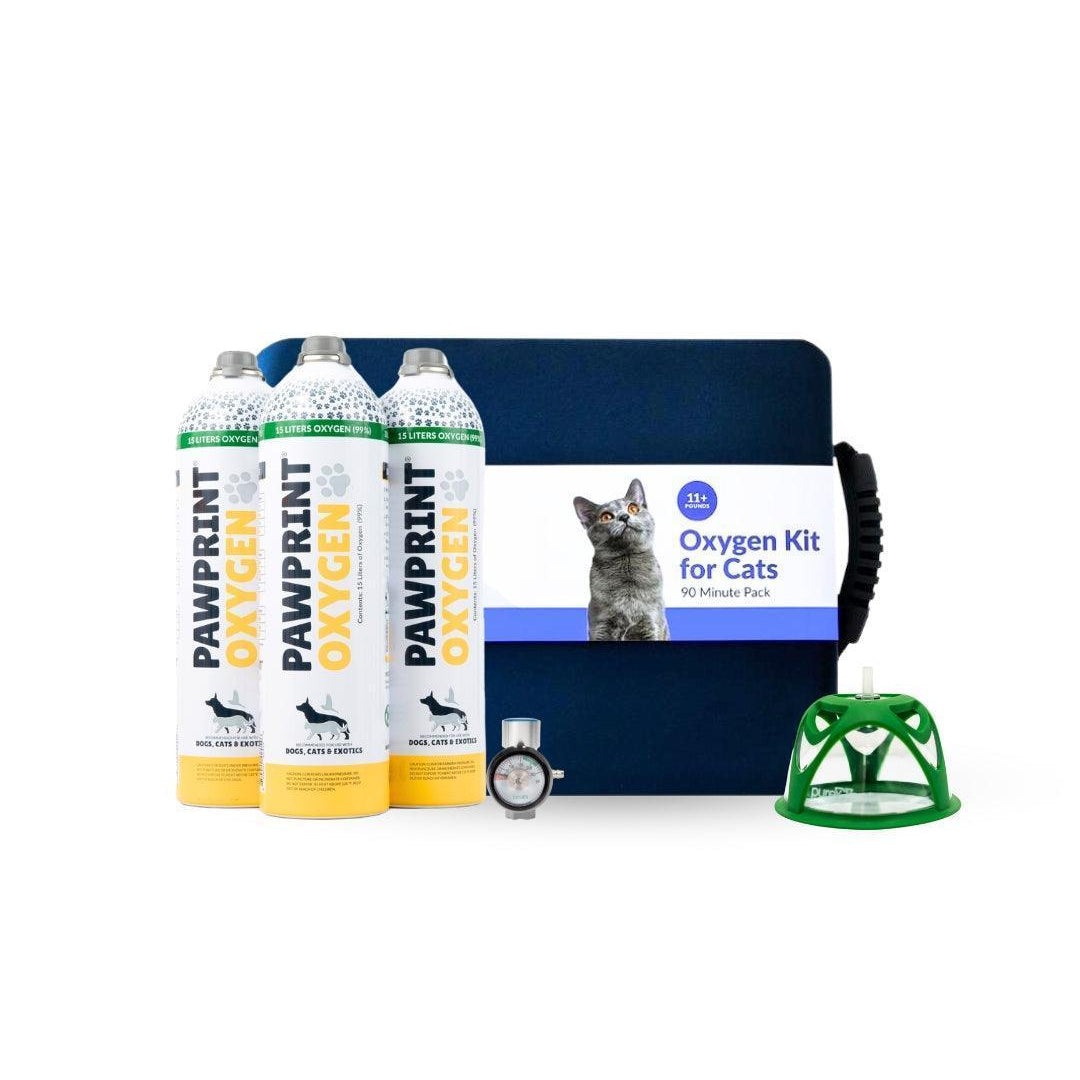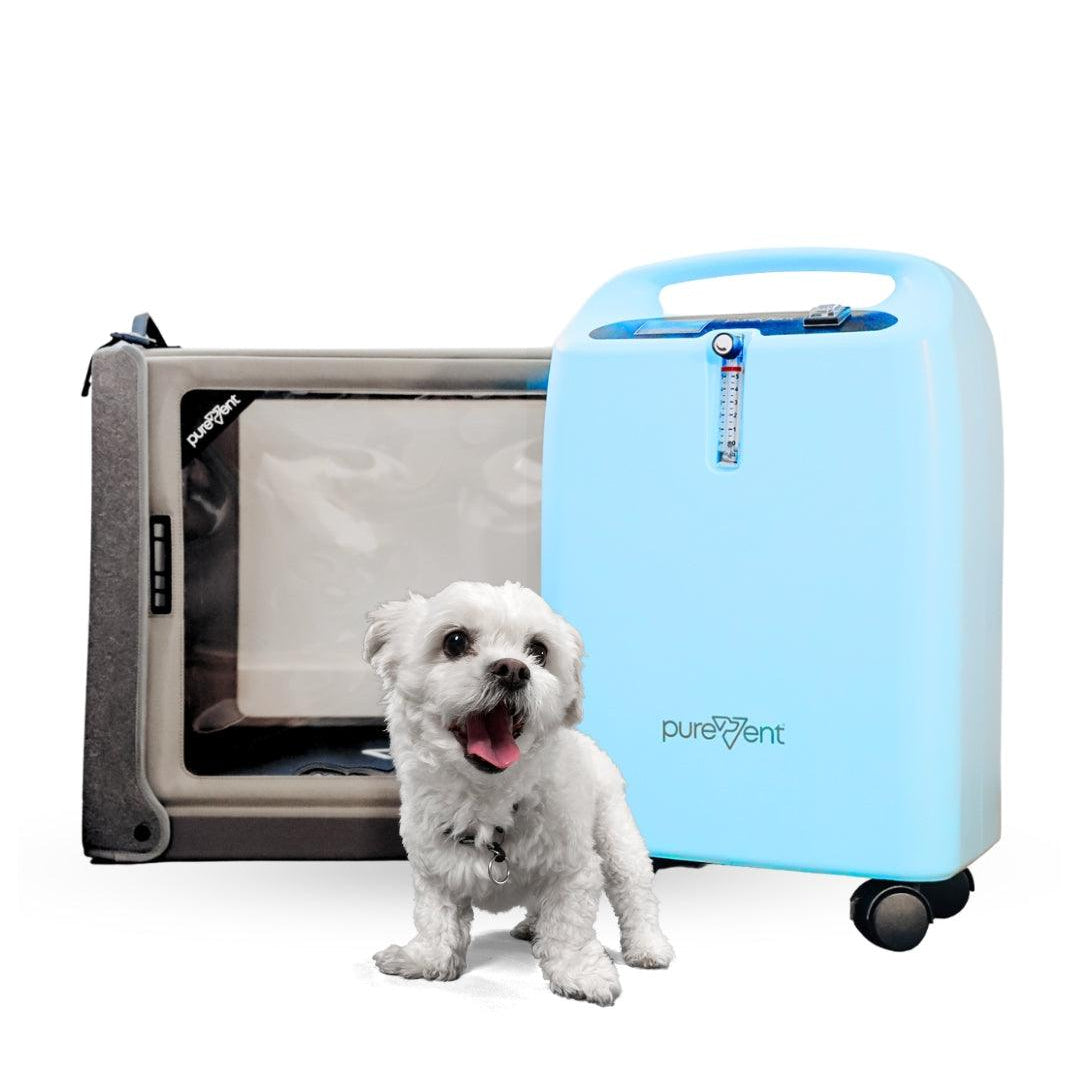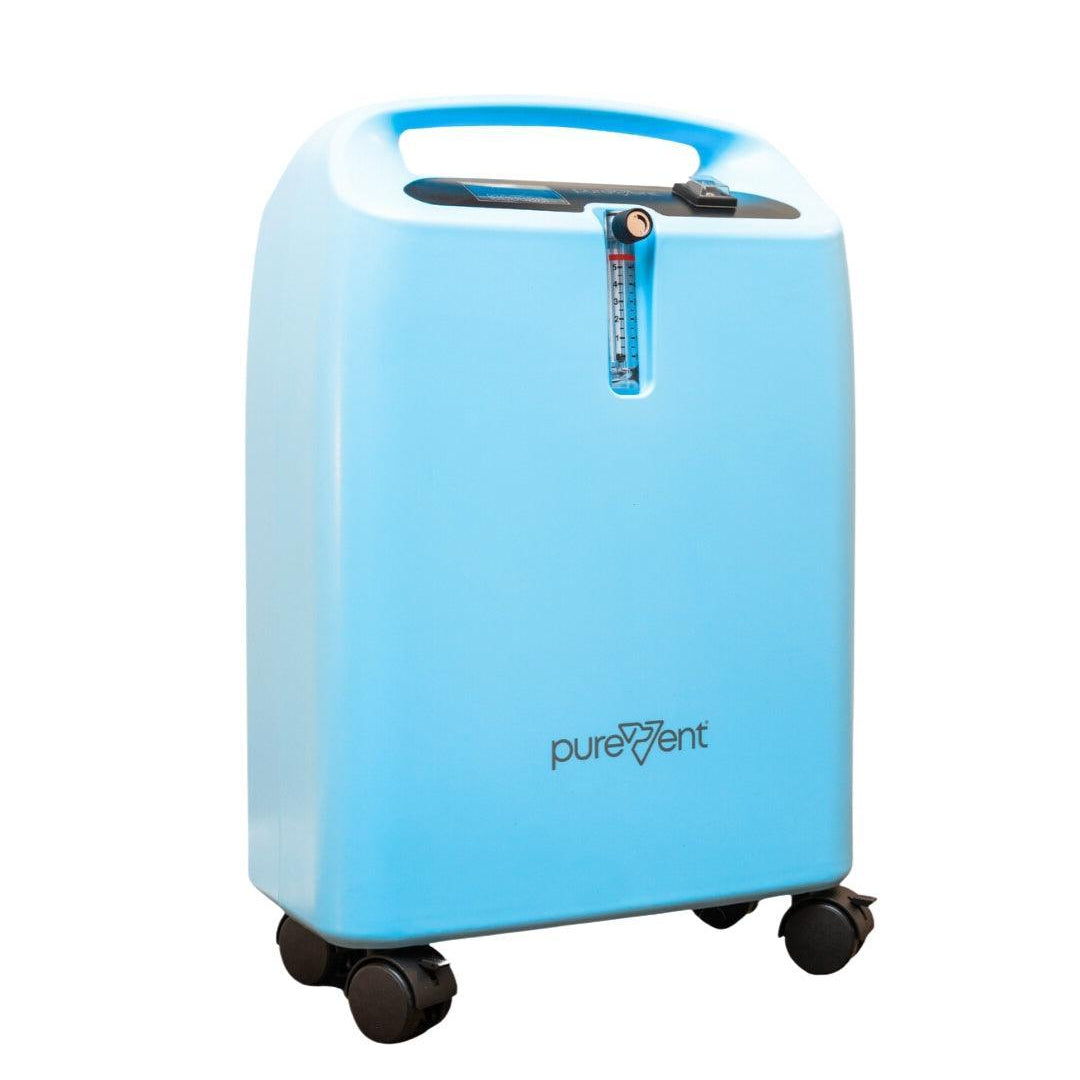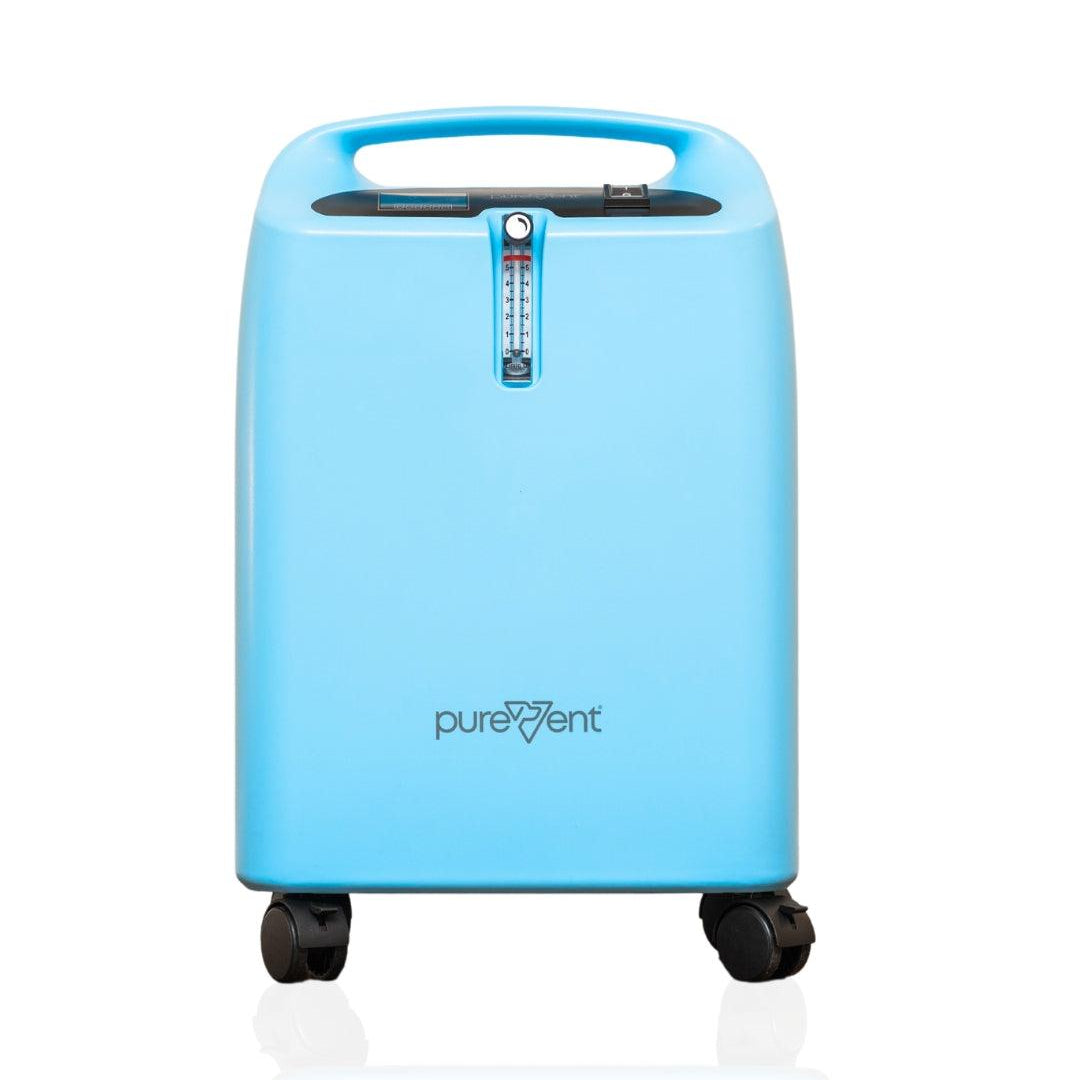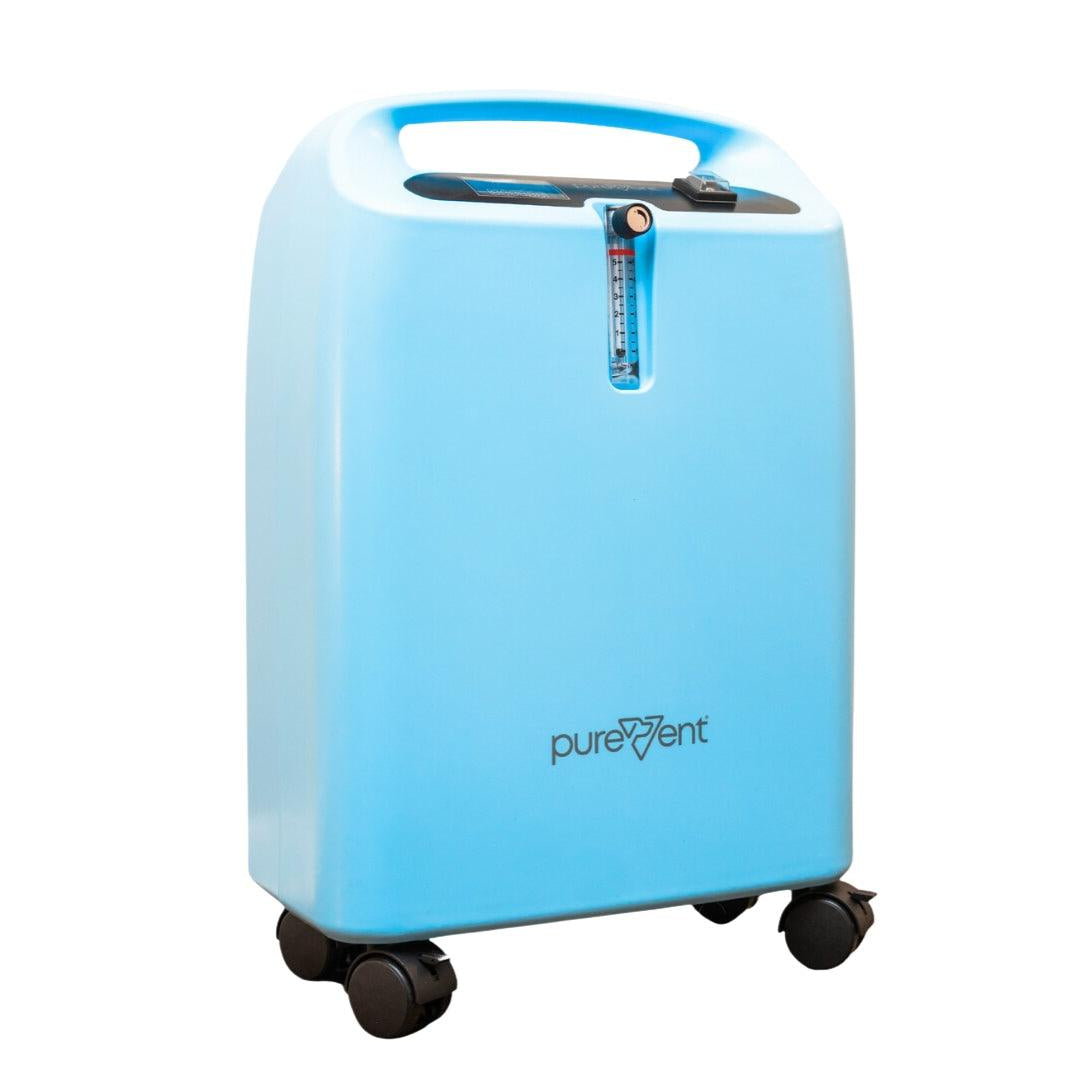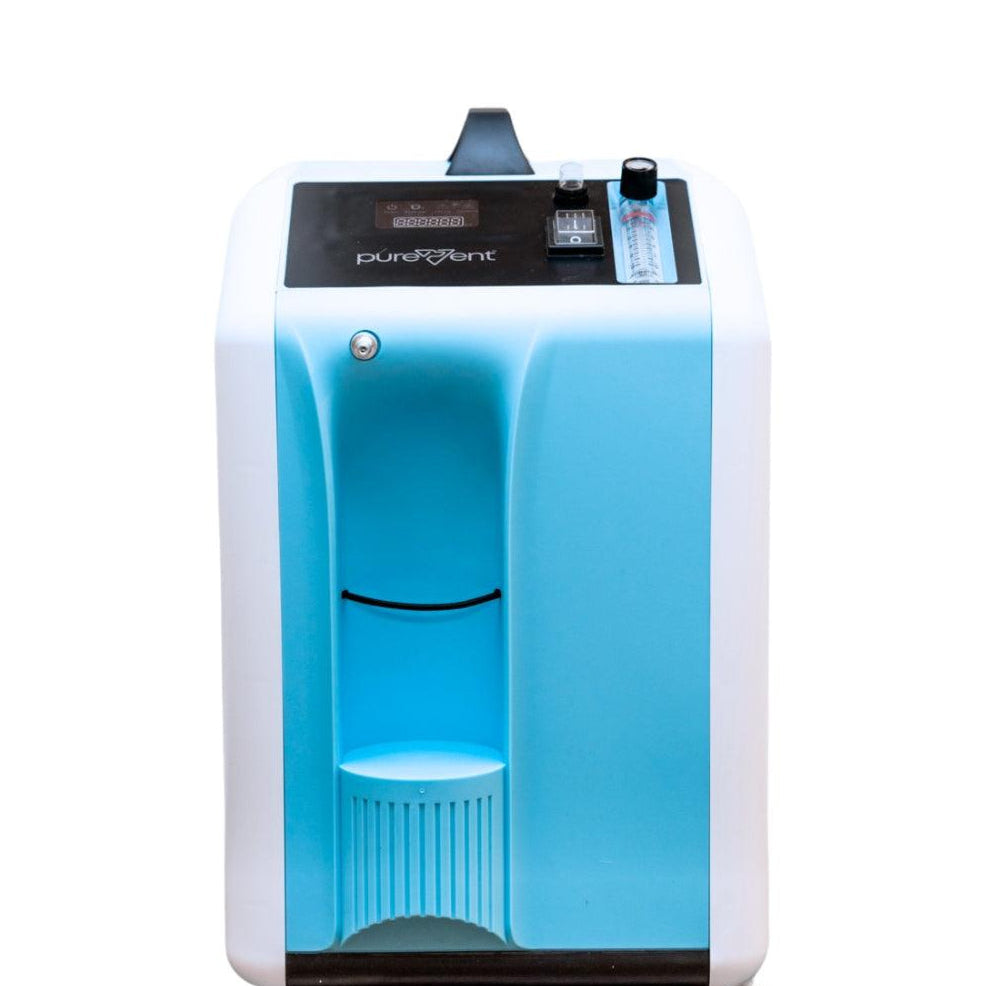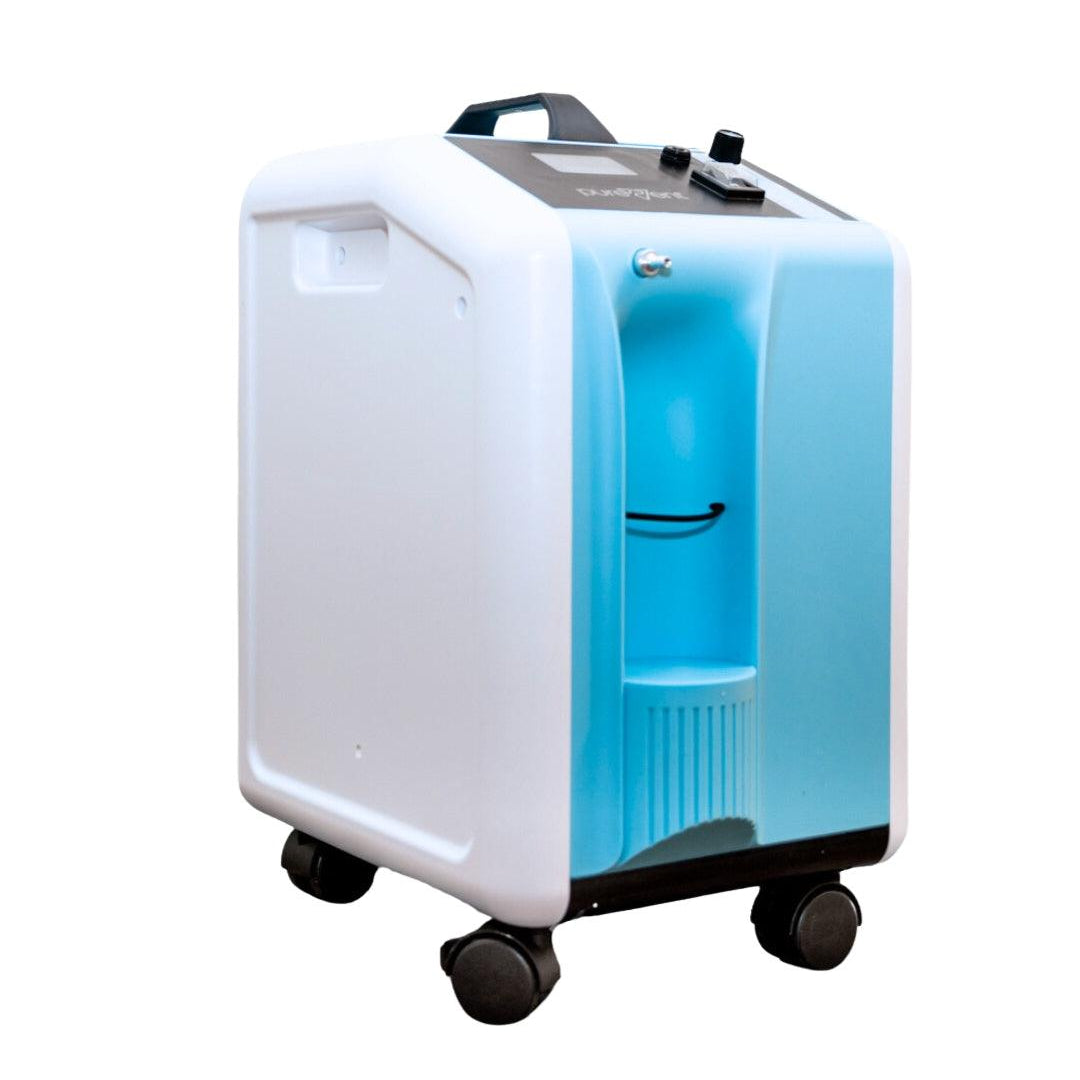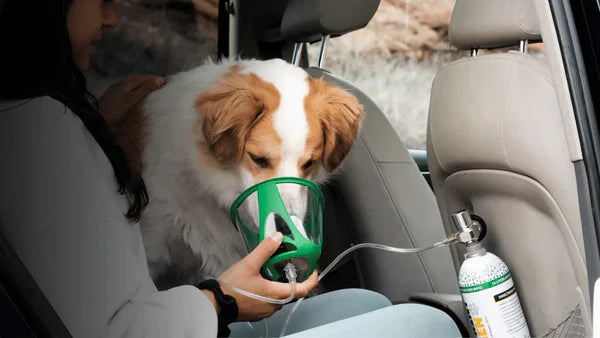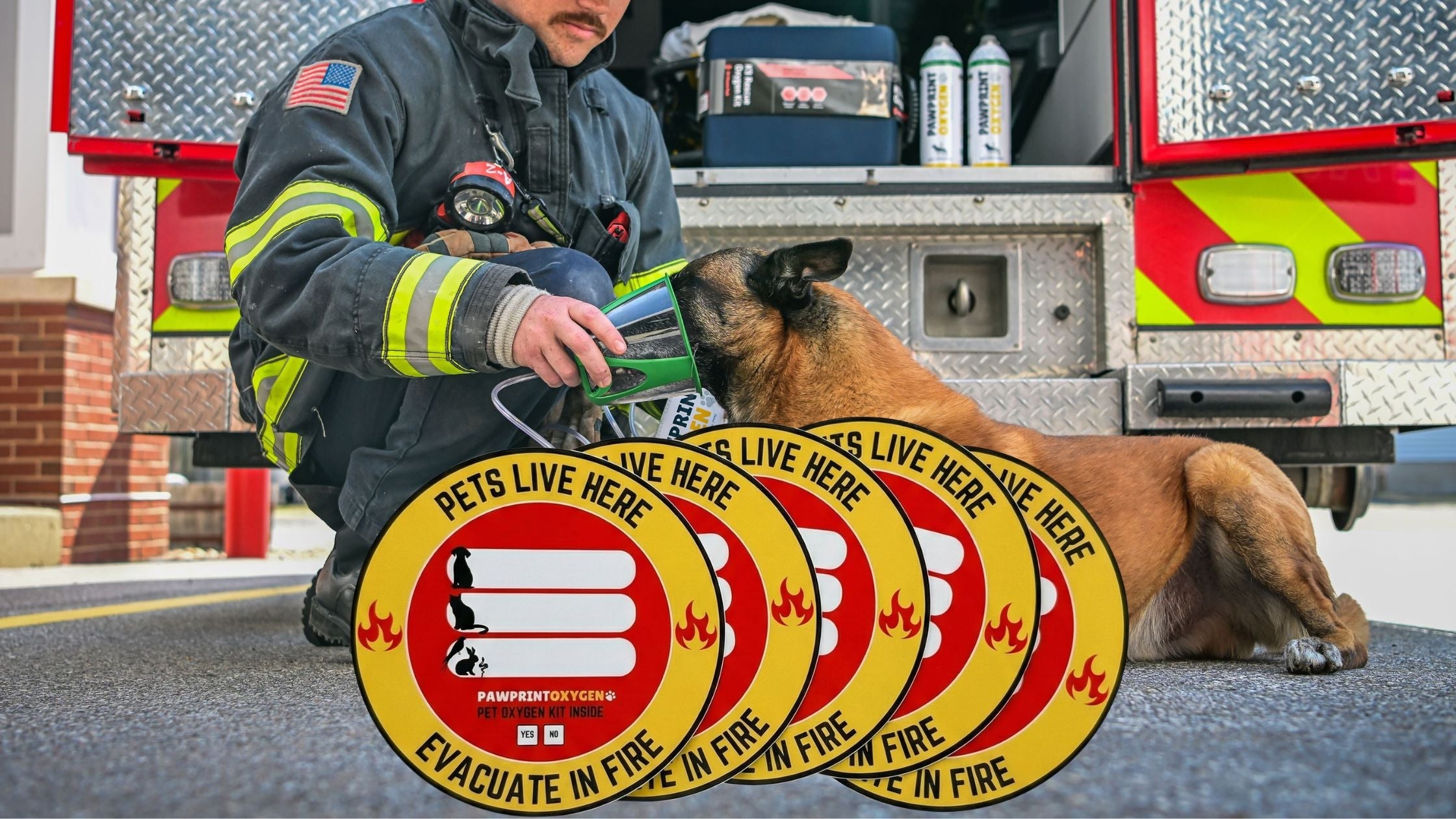Congestive heart failure in dogs occurs when the heart cannot pump blood effectively, leading to fluid buildup in the lungs (pulmonary edema), abdomen (ascites), or both, typically stemming from underlying conditions like mitral valve disease or dilated cardiomyopathy. Common signs include persistent coughing (especially at night or after exercise), labored or rapid breathing, and decreased activity or fatigue. Although congestive heart failure cannot be cured, its progression and symptoms can be managed through dietary changes, tailored exercise, and veterinary treatments to improve the dog's quality of life.
Table of Contents
Congestive Heart Failure (CHF) in dogs is a condition where the heart is unable to pump blood efficiently, leading to an accumulation of fluid in the lungs (pulmonary edema), abdomen (ascites), or both. This can result from various heart diseases, such as valvular insufficiency (often due to mitral valve disease), dilated cardiomyopathy, or other cardiac conditions.
Congestive heart failure is a serious condition that can affect dogs of any age. While the disease cannot be cured, there are ways to help prevent it or reduce the symptoms through a special diet and physical activity program. Learn more about how to help your dog manage congestive heart failure below.

Symptoms of Congestive Heart Failure in Dogs
Congestive heart failure in dogs can present in many ways, and it’s important to recognize the early warning signs. Dogs may develop persistent coughing, difficulty breathing, or fatigue, especially after activity. Some may show restlessness at night, swelling in the abdomen, or gradual weight loss despite eating normally. If you notice any of these symptoms, contact your veterinarian promptly.
Common symptoms include:
Persistent coughing (often worse at night or after exercise)
Labored or rapid breathing
Shortness of breath or wheezing
Reduced activity or exercise intolerance
Lethargy or fatigue
Restlessness, especially at night
Swollen or bloated abdomen (ascites)
Unexplained weight loss

Diagnosing Congestive Heart Failure in Dogs
When diagnosing congestive heart failure in dogs it is important to consider their medical history as well as physical signs like weakened lymph nodes and weakened gum colors that suggest decrease blood oxygen levels. Veterinarians will use specialized tests such as echocardiograms or x-rays to look at the dog’s heart size and shape before making a diagnosis.
If you are noticing symptoms of congestive heart failure in your dog, it is important to bring them to the attention of your veterinarian as soon as possible.
Some common diagnostic tools used to diagnose congestive heart failure are:
- Physical Examination: Checking for heart murmurs, irregular heartbeats, and signs of fluid retention
- Chest X-rays: To visualize the heart and lungs and detect fluid accumulation
- Echocardiogram: An ultrasound of the heart to assess its function and structure
- Electrocardiogram (ECG): To monitor the electrical activity of the heart
-
Blood Tests: To evaluate overall health and check for underlying conditions
Causes of Congestive Heart Failure
The most common cause of congestive heart failure in dogs is dilated cardiomyopathy (DCM), which is an enlargement of the left ventricle of the heart. This is due to a reduced contractility of the myocardial muscle fibers that weaken the pumping strength. Other causes include issues associated with valve diseases and conditions like mitral valve insufficiency, which can lead to fluid accumulation around the lungs and heart causing congestive heart failure.
Is congestive heart failure more prevalent in certain dog breeds?
Yes, congestive heart failure (CHF) is more prevalent in certain dog breeds due to genetic predispositions and breed-specific health concerns.
Dog breeds that may be predisposed to CHF:
- Cavalier King Charles Spaniel
- Miniature and Toy Poodles
- Dachshund
- Doberman Pinscher
- Great Dane
- Boxer
- Irish Wolfhound
- Cocker Spaniel
What foods should I avoid feeding my dog with CHF?
If your dog has congestive heart failure, avoid feeding foods high in sodium, as excess salt can lead to fluid retention and worsen heart strain. This includes processed treats, deli meats, cheese, canned foods with added salt, and table scraps like chips or fast food . Also, steer clear of high-fat foods that may contribute to obesity, putting additional stress on the heart. Certain commercial dog foods may contain excessive sodium, so opt for low-sodium, heart-healthy diets recommended by your vet. Additionally, some dogs with CHF may require taurine and L-carnitine supplementation, so avoid grain-free diets linked to taurine deficiency-associated dilated cardiomyopathy unless specifically advised by your veterinarian.
Can CHF go away on its own, or is it permanent?
Congestive heart failure is a progressive, lifelong condition that does not resolve on its own. While it cannot be cured, early diagnosis and proper management through medications, diet changes, supplemental oxygen, and lifestyle adjustments can greatly improve your dog’s comfort and slow disease progression. Common treatments include diuretics to reduce fluid buildup, ACE inhibitors to ease heart strain, and supportive therapies like oxygen or taurine supplementation. With regular veterinary care and proactive management, many dogs with CHF can enjoy a longer, more comfortable life.
PureVent 5L Medical-Grade Oxygen Concentrator
The oxygen concentrator plugs into a wall outlet (120V) and concentrates oxygen from room air, providing high purity oxygen gas (>90%). The oxygen concentrator provides an endless supply of continuous flow oxygen therapy and is recommended for pets requiring extended oxygen therapy (more than one hour per day). Use the oxygen concentrator with a PureVent Pet Oxygen Mask or an oxygen chamber.
Treatment for Congestive Heart Failure in Dogs
Treatment for congestive heart failure in dogs often includes medications such as diuretics, ACE inhibitors, beta blockers, vasodilators, calcium channel blockers, or digoxin, depending on the type and severity of the condition. Nutritional supplements like Vitamin E may also help reduce oxidative damage that contributes to heart strain and fluid buildup. In some cases, veterinarians may recommend oxygen therapy to ease breathing difficulties and improve overall quality of life.
The Prognosis for Dogs with Congestive Heart Failure
The prognosis for dogs with congestive heart failure is best when treatment begins early, before significant heart damage occurs. With timely veterinary care, including medications and dietary adjustments, many dogs can live longer and enjoy an improved quality of life.

Prevention Strategies for Congestive Heart Failure in Dogs
Ideally pet owners would consider implementing preventative strategies regarding identifying potential cardiovascular abnormalities long before their dog is showing symptoms of congestive heart failure.
Preventative tests include the annual completion of canine physical examinations performed by appropriately licensed veterinarians, who can then detect any potential underlying preexisting conditions, like heart murmurs. Certain dog breeds can be susceptible to congestive heart failure in their lifetime, so if you are the owner of one of the breeds below, you can make sure to ask your Veterinarian about testing for CHF early in their lifetime.
The top dog breed affected by Congestive Heart Failure (CHF) is the Cavalier King Charles Spaniel. This breed is particularly susceptible to a condition called mitral valve disease, which often leads to CHF.
Breeds Commonly Diagnosed with Congestive Heart Failure:
Some dog breeds are more prone to congestive heart failure (CHF) due to genetic and breed-specific heart conditions. Small breeds like Cavalier King Charles Spaniels and Dachshunds are especially at risk for mitral valve disease, while large breeds such as Doberman Pinschers and Boxers are more likely to develop dilated cardiomyopathy. Owners of these breeds should prioritize regular veterinary check-ups and early screening to catch heart issues before they progress.
Breeds commonly diagnosed with CHF include:
Cavalier King Charles Spaniel
Dachshund
Doberman Pinscher
Boxer
Collie
Cocker Spaniel
Pomeranian
Poodle
Shetland Sheepdog
Rottweiler
Labrador Retriever
German Shepherd
Beagle

If you are noticing congestive heart failure symptoms in your dog, it's important to bring them to your veterinarian's attention as soon as possible.
Preventative tests include the annual completion of canine physical examinations performed by appropriately licensed veterinarians, who can then detect any potential underlying preexisting conditions.
The most common cause of congestive heart failure in dogs is dilated cardiomyopathy (DCM), which is an enlargement of the left ventricle of the heart.
Dedicated Approach to Your Dog's Health
Understanding congestive heart failure in dogs is key to providing the best care and quality of life. Early detection, regular vet check-ups, and awareness of breed risks allow for timely treatment and better management. While CHF is a chronic condition, advances in veterinary care and attentive pet ownership can greatly improve a dog’s comfort and prognosis.
